
Recovery after laparoscopy takes a certain amount of time, although not as long as in an abdominal surgery. Their duration depends on the type of manipulation (diagnosis or treatment), the type of intervention (which organ was examined), the occurrence of complications and can last 2-4 weeks. During this time, a number of different events in a person's life do not stop, including those related to the reason for drinking alcohol. Therefore, patients often find out when to drink alcohol after a laparoscopy.
Attitude towards alcohol during the recovery phase after laparoscopy
| Type of laparoscopic operation | Important alcohol-related adaptation functions |
| Gynecological interventions | During the adjustment phase after the endovideo surgery, a woman has to deal with nausea and gas. With the onset of pain, the doctor prescribes the use of nonsteroidal anti-inflammatory drugs and, if an infectious-inflammatory focus is suspected, antibiotics. After laparoscopy of the ovarian cyst, a woman needs to drink hormonal drugs to correct the hormonal background. Therefore, alcoholic beverages are allowed after a month and a half at the earliest, since drugs are absolutely incompatible even with small doses of alcohol. |
| Removal of appendicitis | Alcoholic beverages are forbidden after laparoscopic appendectomy, as they severely damage the liver and endanger the development of cirrhosis. In addition, ethanol causes inflammation of the mucous membranes of all digestive organs. Due to the risk of flatulence and the appearance of gas, even the use of beer is prohibited, since the drink is a fermentation product, albeit natural. Scattered seams can result from increased gas formation. The doctor treating you will decide how long you can taste alcohol |
| Removal of the gallbladder | After a laparoscopic cholecystectomy, patients not only have to make significant adjustments to their diet, but also to their overall lifestyle. The body should be helped to adapt to the particular functional conditions, and the use of some drugs can become lifelong. Therefore, after the procedure, alcohol is not only not allowed, but definitely contraindicated, since the organ responsible for breaking down alcohol has been removed. Without meeting all the requirements of the doctor, a favorable result is questionable |
For successful rehabilitation after any type of laparoscopy, it is important to follow simple rules for full body recovery. Even with a complete rejection of alcohol, life does not end, but acquires a new meaning, and the colors of reality become brighter.
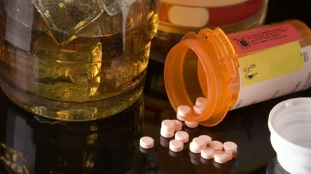
The point in time at which the risks of taking ethanol are minimized
Drinking alcohol after the operation is undesirable. It is assumed that after:
- abdominal surgery, the first minimum dose of ethanol can be taken one month later;
- tooth extraction - after 2-3 days;
- Appendectomy (for purulent appendicitis) - after 2-3 weeks;
- gynecological operations (for uterine fibroids or ectopic pregnancy) - after 4 weeks.
- plastic and cosmetic operations - after 3 weeks.
The time factor is influenced by the age and physical condition of the patient. If the average abstinence time during appendectomy is 2-3 weeks, it can be 10-14 days in young people aged 25-30 and 1. 5-2 months in people over 35.
If it is not possible not to take alcohol, it is better to talk to your doctor about the approximate "safe" times to abstain. This is especially true for the widespread operations on:
- Spine for the removal of herniated discs and injuries to the coccyx;
- rectum (for hemorrhoids);
- thyroid;
- joints of the limbs;
- prostate (for cancer or adenoma);
- testicles (varicocelectomy for varicocele);
- knee area (at the knee joint);
- leg veins (for varicose veins).
Alcohol has different effects
Unfortunately, not everyone takes the advice of a tattoo artist. Therefore, different types of consequences often arise. There is no such thing as harmless alcohol. Some people may think - what happens if I have a bottle of beer or a glass of vodka? Let's take a look at how certain types of alcoholic beverages affect the body after tattooing.
Fans of cognac and whiskey should refuse these drinks within a few weeks of the procedure. The fact is that they have a direct impact on the blood vessels and expand them. As a result, the image can become much darker by about half. The damaged skin takes longer to heal and the wound may bleed.
If you drink vodka after tattooing, the drawing may become distorted and blurry. The paint is washed out very heavily. As for the seemingly harmless beer, you also need to refrain from drinking it. Frothy drinks contribute to a slight increase in blood pressure, which affects the lymph, more precisely the amount of its production.
Important! After consuming alcoholic beverages, a rough crust appears on the skin for a few days after applying the tattoo. As a result, scars, scars, or bumps may appear that will not go away even after the skin has completely healed.
Alcohol and anesthesia
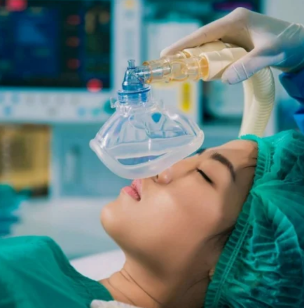
Anesthesia - Loss of tissue sensitivity for a short time under the influence of anesthetics. Such drugs block the transmission of nerve impulses, which prevents the signals from reaching the brain, which means that the body's response to irritation in the form of painful sensations is also absent.
The local anesthesia lasts another 2. 5 hours after the operation. However, when drinking alcohol, the anesthetic effect of the drug immediately disappears, there is an acute attack of pain, which even with anesthetics cannot be subdued.
With general anesthesia in abdominal surgery, the situation is much more complicated when the body has to be protected from shock and pain.
After recovery from anesthesia, the following complications can occur:
- headache;
- nausea;
- weakness or tension in the muscles;
- discomfort in the throat;
- cloudiness of consciousness;
- drop in blood pressure;
- hallucinogenic delirium.
Why can't you drink alcohol after anesthesia?
This combination can lead to critical conditions such as anaphylactic shock and nervous disorders. The waiting time from anesthetics depends on the type of drug, its dose and the patient's health. Usually the main part leaves the body within a day after surgery, and the rest within 2-3 days.

What can be the consequences
Not all antibiotics are created equal: some are mild and some are more aggressive. Listed below are the groups of drugs that must be taken strictly according to the doctor's instructions, excluding all experiments on health:
- chloramphenicol;
- tetracycline;
- nitroimidazole;
- macrolide;
- cephalosporin;
- lincosamide;
- aminoglycoside.
If you ignore the restrictions, serious health problems cannot be avoided. The person stands in front:
- heart attack;
- dash;
- allergic reaction;
- Tissue suppuration can lead to burns.
The drug Biseptol is similar in action to disulfiram (it is used to code alcoholism). If you mix it with alcohol, the patient's temperature rises, palpitations appear, accompanied by severe vomiting and headache. Bleeding can occur from vasospasm in the brain. As a result - a heart attack, coma or death.
Rules for drinking alcohol after removing the gallbladder
If a person does not initially feel uncomfortable after having a cholecystectomy, it does not mean that alcohol is allowed. In this case, in particular, the systematic consumption of intoxicating drinks is dangerous. In many patients with a distant gallbladder, the body reacts spontaneously to alcohol with invincible vomiting or severe pain. This is because after the operation, the digestive organs begin to work in extreme conditions.
Cholecystectomy itself forces many patients to rethink their diet and get rid of bad habits. Only in this case, long-term remission is possible and it becomes possible to live without constant pain in the hypochondrium.
After removing the gallbladder, it is most correct to completely forget about alcohol in any form and quantity. And there are many patients who have managed to completely remove alcohol from their lives. However, not all people can completely do without alcohol - after all, most of the traditions of Slavic culture are associated with the mandatory use of strong drinks.
Therefore, it is important to know the basic rules for drinking alcohol after removing the gallbladder, what to drink in a similar situation and in what amount. A compromise between the title "white crow" and the damage to one's own health can be restrictions in the following form:
Usually, the removal of the gallbladder is associated with the development of chronic inflammatory processes in the biliary tract or liver. With such diseases, the absence of the gallbladder is not a reason to relax and absorb everything. In addition to alcohol, patients at least 2-3 years of age are prohibited from consuming fatty, fried, smoked and spicy foods. This time after the cholecystectomy is considered restorative and is associated with particular restrictions for the patient.
Removal of the gallbladder is done very often, and after such an operation, it is quite possible to live a full life. However, such an intervention requires that a person monitor their health more closely, follow a diet and remove alcohol from life as much as possible.
Long-term remission with good health for the patient is only possible with a regulated lifestyle and refusal of addiction. The need to severely restrict or exclude alcohol does not prevent many people from living with pleasure and prefers to find real reasons for joy.
How much alcohol shouldn't be drunk?
Ethanol dilates blood vessels and increases blood flow, which is very dangerous if the wound is open in the mouth. Drinking can cause heavy bleeding that is difficult to stop.
After removal, a blood clot forms in the wound, which protects it from infection. If there is excessive bleeding, it can wash out, and inflammation cannot be avoided. As a result - twitching pain, swelling, suppuration, fever. We need to go to dentistry again, clean the pus, open the gums and drink antibiotics.
In addition, ethanol can trigger an allergic reaction to the pain reliever. Nobody can predict it because every organism reacts to pain blockers in its own way. The most common symptoms: rash, itching, edema, difficulty breathing. Anaphylactic shock is also possible.
The period during which the use of strong drinks is prohibited is determined individually. Before drinking, the patient must make sure that the wound has healed and will no longer bleed in the event of accidental mechanical damage. The gums are healthy, there is no swelling, and there is no pain when pressed. There is no putrid purulent taste in the mouth.
You will also have to wait until the anesthetic is removed from the blood. This process takes from one day to several days: the time depends on the dose injected, the individual metabolic rate and the type of anesthetic. As a rule, no traces of the drug remain in the blood by the third evening.
Tooth extraction is a relatively harmless operation, but some restrictions must be observed even afterwards, especially if the doctor has used anesthesia. You should be careful when drinking alcohol - even a small serving can have serious consequences.
The effect of alcohol on blood circulation
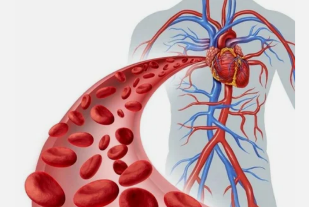
Sometimes an operation not only damages soft tissues, but also blood vessels that supply certain parts of the body. With a favorable result, they will be restored, therefore no organ will suffer from a lack of oxygen and excess carbon dioxide.
Surgeons find that such a result is only possible if all recommendations for the recovery phase are strictly observed. In particular, circulatory problems are likely to occur when a person disobeys their doctor and drinks alcohol. Alcohol negatively affects the condition of the vascular bed.
It is believed that small doses of alcohol have a positive effect on blood circulation, but this is only true for completely healthy people. After the operation, the situation is different.
Even a small amount of strong drinks can be harmful. Doctors explain this by the fact that smooth muscle tissue undergoes a sharp contraction under the influence of ethyl alcohol. In other words, the walls of arteries and veins turn into a state of elevated tone. Their lumen narrows and the speed of blood flow through them decreases.
As a result, the patient's blood pressure drops and the oxygen supply to tissues and organs deteriorates. This means that the healing process is slower after the operation and the rehabilitation phase will drag on indefinitely.
Dangers of alcohol before the operation
The presence of ethanol in the body is unacceptable not only after surgery, but also during preparation. Even if the operation is performed using a modern method of endovideo surgery that does not require standard cavity incisions. Drinking alcoholic beverages before surgery contributes to the disruption of the cardiovascular system, which puts heart failure at risk with the likelihood of death.
In some cases, alcohol in the blood can cause problems with the effect of anesthesia, the duration of which is short-term without relieving the pain. Sometimes patients ask if it is possible to drink beer or other carbonated drink before the procedure on the abdominal cavity. Such drinks before the operation contribute to irritation of the gastric mucosa with carbon dioxide and, in combination with ethanol and anesthesia, lead to gastrointestinal bleeding.
Even small doses of alcohol, taken prior to manipulation with the administration of anesthetic, cause very difficult recovery from general anesthesia. Because of the symptoms of severe hangover, doctors must bring the operated person into consciousness, fight delirium tremens, and withdraw from the state of anaphylactic shock. Therefore, doctors warn that after the laparoscopy, you can only drink clean water that does not contain carbon dioxide, and even more - alcohol. Especially after an endovideo surgery with removal of the ovarian cyst, when a woman can be prescribed antibiotics to protect herself from the possible development of inflammation.
Post-operative complications

According to medical statistics, the risk of complications is much higher in patients who drink alcohol before or after the operation. Ethyl alcohol and anesthesia are completely incompatible. Anesthesia is a temporary loss of tissue sensitivity under the influence of medical anesthetics. Their main job is to block the transmission of nerve impulses. As a result, the signals do not reach the brain, so the patient does not feel pain.
The effect of the anesthesia after the operation lasts another 2-3 hours. If you drink some alcohol after the operation, the effects of the pain reliever will go away immediately.A similar reaction can occur if alcohol was drunk before the operation.
In this case, additional anesthesia does not lead to the desired result.
Every surgical procedure for the body is stressful. Drinking alcohol after surgery can cause serious problems. Possible complications are:
- headache;
- cloudiness of consciousness;
- nausea;
- lower blood pressure.
Ethyl alcohol has a negative effect on blood clotting. It makes it too fat. Red blood cells in the blood stick together and form clots that clog blood vessels and small capillaries. Drinking alcohol after surgery can cause a stroke, heart attack, or bleeding.
Many alcoholics who have been put in a hospital bed with a disappointing diagnosis that requires surgery ask themselves, “When can you drink alcohol after the operation? ” when someone doesn't know when. This is especially true during illness, including pre- and post-operative periods. Today we will address the topic in more detail and find out the physiology of the effect of ethyl alcohol on the body that has recently undergone surgery.
After the operation
After the operation, the patient's body needs long-term quality recovery. For this purpose, a significant list of medicines is usually assigned to facilitate the process. Intoxication somewhat disrupts the recovery process and has a direct negative effect on the body, the immune system and on the interaction with medication.
Due to the fact that alcohol causes blood thickening, its use after surgical interventions is dangerous - it affects the veins and leads to serious consequences in the form of thrombosis of the vessels, which does not yet recover after the surgeon's interventionto have. Depending on the alcohol concentration, both the smallest capillaries and the larger vessels can overlap, which significantly slows down blood circulation and recovery processes.
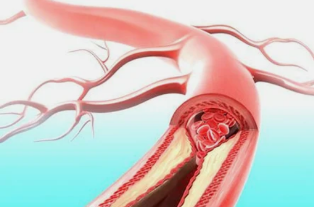
The liver and kidneys of an alcohol addict have serious problems with their work, often made more difficult by cirrhosis and other chronic diseases. In the postoperative phase, the body is already exposed to considerable stress in order to eliminate the decay products of powerful drugs. Alcohol significantly increases the additional risk.
The combination of alcohol and drugs in the postoperative period leads to a delay in the elimination of toxins from the body. The negative symptoms of this combination manifest themselves as follows:
- cardiac arrhythmia;
- difficulty breathing;
- increased sweating;
- dizziness;
- lower blood pressure;
- Rush of blood to the head.
To protect against postoperative complications, strong antibiotics that are not compatible with any alcoholic product are often prescribed. Alcohol under general anesthesia has a depressing central nervous system and often leads to delusional states, hallucinations, and other manifestations of damage.
Alcohol during rehabilitation
As with other surgical procedures, drinking alcohol after laparoscopy is particularly dangerous. This is especially true in the field of gynecology. Since after the manipulations of endovideosurgery associated with the appearance of postoperative pain and inflammation, patients are usually prescribed certain drugs. The use of pain relievers and antibacterial agents is incompatible with alcohol. Its use is strictly prohibited.
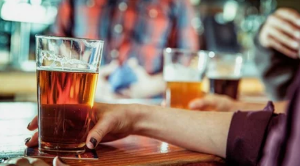
Reasons for the ban on alcoholic beverages after laparoscopy:
- Instead of restoring immunity, the body must spend energy on removing alcoholic toxins.
- If a woman has had a little beer before the operation while treating an ovarian cyst with a laparoscopic method, she is at risk of inflammatory complications.
- taking alcoholic beverages together with nonsteroidal anti-inflammatory drugs leads to the death of hepatocytes;
- Alcohol consumption after anesthesia slows down the regeneration process and also leads to an exacerbation of latent complaints, chronic problems;
- causes vasodilation, alcohol after anesthesia threatens internal bleeding, bleeding, can cause heart attack or stroke;
- Alcohol greatly thickens the blood, which clogs small capillaries with clumping erythrocytes and creates blood clots.
- The use of alcoholic beverages that suppress the nervous system can cause confusion, the onset of a delusional state, and hallucinations.
Antibiotic rules
The most important rule of thumb for taking antibiotics is to only use them in situations where you cannot do without them. Areas of application are the symptoms of an acute bacterial infection that the body cannot cope with on its own. To achieve the desired therapeutic effect, taking antibiotics cannot be indiscriminate.
Be sure to follow the instructions below:
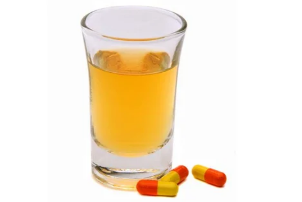
- You cannot prescribe an antibiotic yourselfunless you have a medical background. Only a doctor can determine the cause of the disease - a virus or bacteria. In the case of a viral infection, antibiotics do not help, on the contrary, they can worsen the course of the disease.
- Do not interrupt the prescribed treatment when you are feeling better.A relapse of the disease can occur;
- Do not change the dosage of the antibiotic during treatment. Decreasing the dosage threatens the bacteria to develop resistance to the drug, and increasing it is fraught with side effects or overdosing.
- Do not drink the antibiotic with tea, juice and, in particular, milk, as this will make it unusable. Milk, milk products and fermented milk products are incompatible with antibiotics, they reduce the effectiveness of the drug. You can drink the drug only with water, about 0. 5-1 glass;
- Do not take antibiotics at any appropriate time.It is important to follow the directions for the medication and use the medication as directed, before, during, or after meals. In addition, it is important to observe the frequency of administration (1 time after 24 hours, 2 times after 12 hours, 3 times after 8 hours, etc. ) in order to create the desired concentration of antibiotics in the body.
- Do not combine antibiotics with physical activity;
- Do not drink alcohol while taking antibiotics.
Before prescribing an antibiotic, you must tell your doctor about the following::
- Medicines that are currently being taken;
- pregnancy or breastfeeding;
- kidney or liver disease;
- Diabetes mellitus.
And even if it was observed earlier:
- Occurrence of side effects;
- development of allergic reactions;
- recent use of antimicrobial agents.


























